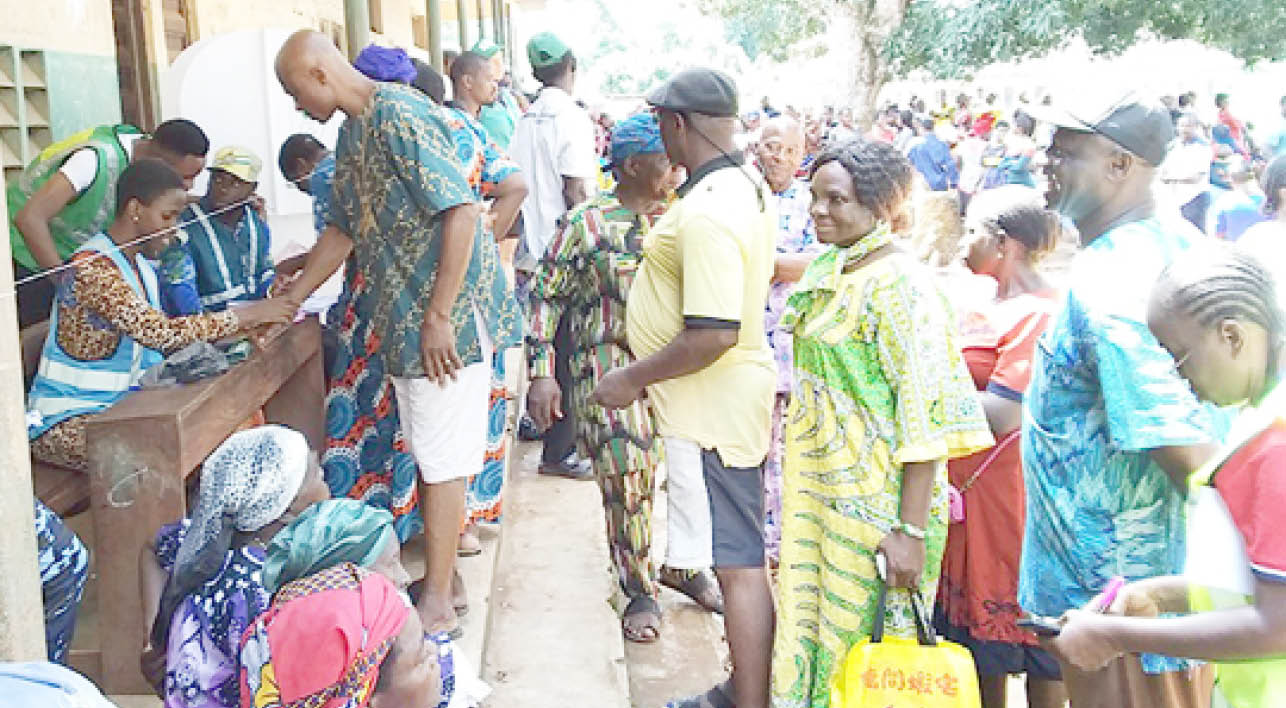A free and fair election occurs when there is political freedom with fair processes leading up to the vote, fair count of eligible voters and acceptance of election results by all parties.
Also, for an election to be tagged free and fair, there must be uniformity of intentions among the electorates, candidates, government and security officials.
Voting by unregistered persons
Every person qualified to vote is required to register with the Independent National Electoral Commission and get a Permanent Voters Card (PVC) in order to be able to vote.
2023: Onaiyekan, Khalid differ on state of nation, others
2023: Tinubu’s wife takes campaign to Northeast
According to part VII, no 124 states that if a person violates this law by voting without registering, a maximum punishment of N100,000 or a jail sentence of six months or both would be imposed on any person found guilty of intentionally attempting to vote in a constituency where their name is not registered on the voter list.
Secrecy in voting
Secrecy in voting here means that every voter’s choice must be protected at polling units, especially in rural areas where they may not clearly understand what secrecy means.
Part VII no 122 states that every person present at a polling unit or coalition centre including election officers, their assistants, agents, and every candidate should uphold a voter’s confidentiality.
Party agents are fond of paying voters to cast their votes for their preferred candidate and ask that they display the votes to ascertain they voted for the candidate they were paid to vote for.
However, the penalty is a fine of N100,000 or imprisonment for six months or both.
Bribery and conspiracy (Vote buying)
Vote buying is a common norm in Nigeria. This happens when a voter accepts money, contract, or public office among others during or after an election in exchange for voting for a said political party, or abstaining to vote altogether.
Part VII no 121 of the electoral law states that anyone found wanting will pay a fine of N500,000 or 12 months imprisonment or both.
Disorderliness at polling units
Disorderliness comes in different forms, including arguments, struggles in the queue, or possession of weapons.
The punishment for this offence under the electoral Act part VII no 125 notes that offenders would be fined N500,000 or a period of 12 months in jail or both.
Wrongful voting and false statement
This means when a person votes illegally or publishes any statement about a candidate’s withdrawal or his personal character.
This offence under part VII no 123 attracts a maximum fine of N100,000 or imprisonment for a term of 6 months or both.
Threat
A direct or indirect threat of a person with violence or injury to compel them to vote or refrain from voting or preventing any political aspirant from free use of the media vehicles, mobilization of political support and campaign at an election.
Part VII no 128 states that anyone found guilty would be fined N1,000,000 or spend three years in prison.
Undue influence
This involves giving or accepting money or any other inducement before or during an election in order to refrain from voting on election day.
Part VII no 127 notes that offenders would be fined N100,000 or 6 months imprisonment or both.
Snatching or destruction of election materials
Snatching or destruction of election materials or devices is an offence under the electoral act, part VII no 126 notes that offenders shall be imprisoned for 24 months.
Other offences include impersonating a registration official which attracts N1,000,000 or 12 months imprisonment or both.
Unlawful possession of a ballot paper, illegal printing of ballot papers or illegal production or importation of ballot boxes all attract a fine of N50,000,000 or imprisonment of not less than 10 years or both.

 Join Daily Trust WhatsApp Community For Quick Access To News and Happenings Around You.
Join Daily Trust WhatsApp Community For Quick Access To News and Happenings Around You.


